In case you’ve been living under the proverbial rock, we now have a new Prime Minister and a new cabinet. While there weren’t too many changes in Prime Minister Ismail Sabri’s cabinet shuffle, one of the changes happens to be for the post of Minister of Communications and Multimedia.
Former Minister of Federal Territories Tan Sri Annuar Musa has been chosen by the new Prime Minister to head the Communications and Multimedia Ministry. He will replace Dato’ Saifuddin Abdullah, who was redesignated as the Minister of Foreign Affairs. With Annuar Musa set to take the helm this week, let’s take a look at the three issues he will have to tackle as he takes on his new post.
1. Malaysia’s cabotage policy for submarine cable repair
While Transport Minister Dr Wee Ka Siong is the more notable face of the cabotage issue, it should be noted that the Ministry of Communications and Multimedia is put in charge of attracting more submarine cable landings under the MyDigital blueprint. Unfortunately, recent developments continue to highlight Malaysia’s struggles with its cabotage policy which affects Malaysia’s telecommunications and internet services as well as digital infrastructure investments.
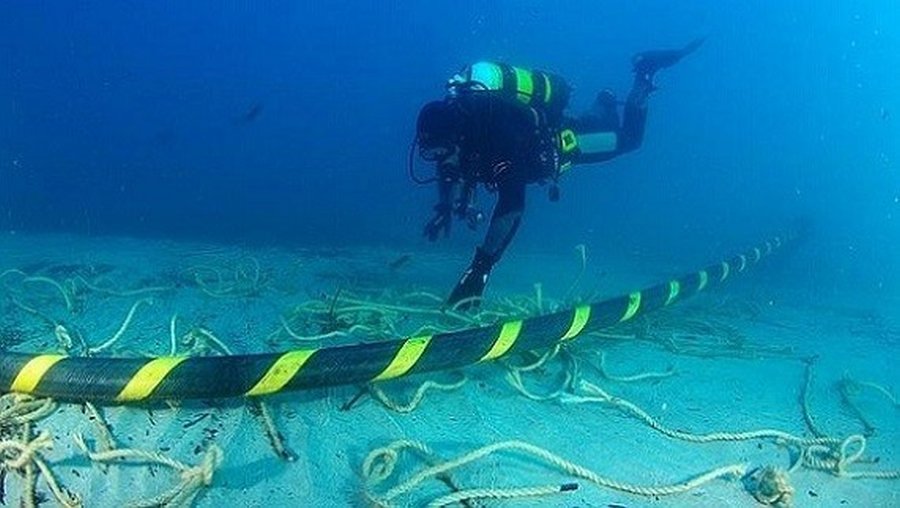
It started when Dr Wee revoked the cabotage exemption for foreign-registered vessels performing undersea cable repairs in Malaysian waters late last year. This exemption was first introduced under the previous Pakatan Harapan administration back in 2019 to speed up undersea cable repairs as the required DP2 ships were not available.
After the exemption was revoked, the tech industry, as well as MDEC, have raised concerns about the policy which will affect digital foreign investments into the country. It was reported by The Edge that tech giants may review their cable investments in Malaysia after the revocation of the cabotage exemption.
Despite Malaysia’s ambition to have the most submarine cable landings by 2025, Malaysia was not included by Facebook and Google for Echo and Bifrost undersea cable networks that were announced in March this year. Malaysia was also being left out from the recently announced Apricot subsea cable which is also seen as a huge loss of opportunity.
Launched by both Facebook and Google, Apricot is a 12,000km long submarine cable that’ll link up a number of East Asian countries such as Singapore, Taiwan, Japan and Indonesia, and boost connectivity throughout the region. It would also help with the rising need for faster internet and wireless networks.
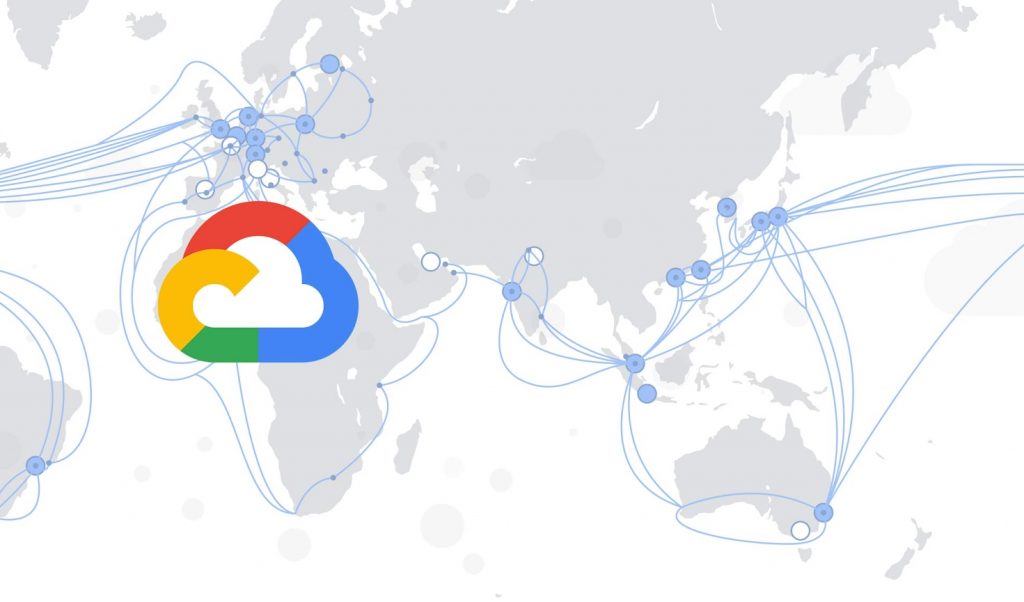
Facebook and Google’s decision also didn’t come as a surprise, as they had already written to former Prime Minister Muhyiddin Yassin to lobby for the reinstatement of the cabotage exemption. Without the cabotage exemption, submarine cable repairs can take up to a month here, significantly longer than in our neighbouring countries. The delay is largely due to the Domestic Shipping License Exemption and consultation required with the Malaysia Shipowners’ Association before the required DP2 foreign vessels can carry out the repair work in our waters. As argued in Parliament in November last year, former Transport Minister Anthony Loke said the exemption was given only for cable repair to speed up the process as Malaysia only had DP1 ships.
With Annuar Musa now taking over as Communications and Multimedia Minister, hopefully, he can provide a push for Putrajaya to review the cabotage policy again. Several ministries were instructed to provide a solution back in April, but there was no decision made since, leading to the Malaysia Internet Exchange (MyIX) and the National Tech Association of Malaysia (PIKOM) to issue yet another statement to raise concern over the cabotage issue last month.
MyIX Chairman Chiew Kok Hin said, “Multinational companies (MNCs) and foreign investors, some of which are MyIX members, are deeply concerned with the silence on the cabotage issue.” While MyIX appreciates the government’s priority in tackling the current COVID-19 pandemic, they believe that the cabotage issue needs to be addressed immediately.
2. Internet coverage and quality of service
Of course, as the Communications and Multimedia Minister, another key part of his job is to oversee the country’s connectivity and communication services, especially as many Malaysians continue to work and study from home. We’ve already seen some initiatives under the National Digital Network (JENDELA) carried out under former Communications and Multimedia Minister Saifuddin Abdullah, and so the stage is set for Annuar Musa to carry on.
Malaysia remains in Phase 1 of the JENDELA program until the end of next year, which means that for the time being, Annuar Musa will be continuing its aims of increasing 4G coverage while also improving average mobile speeds from 25Mbps to 35Mbps. JENDELA also aims to increase the number of premises with fibre internet from 5 million to 7.5 million by 2022.
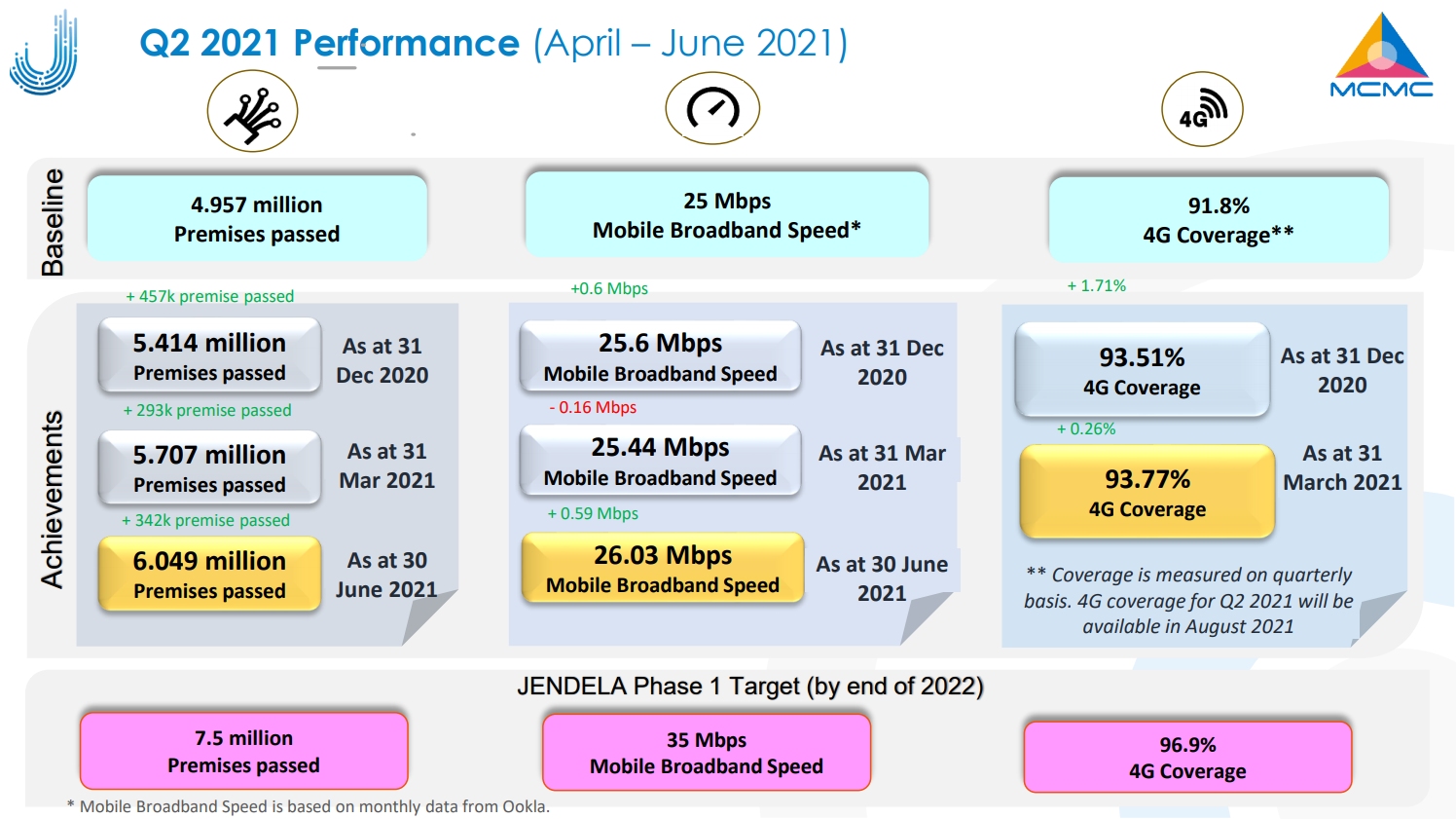
Furthermore, Annuar Musa will be overseeing the shutdown of the 3G network which aims to free up the 3G spectrum for 4G use. While the number of users with older 3G devices is declining many are still stuck on 3G networks. Crucially, he and the MCMC will need to ensure everyone is on board with 4G before the shutdown occurs. This means educating people on the need to have the latest SIM to get 4G as well as ensuring all telcos cover all 3G coverage gaps so that there’s no service interruption, especially for the rural folks.
But as Annuar Musa and the JENDELA program work on meeting those goals, it should go beyond just meeting the numbers. There’s no point to have faster internet plans at relatively affordable prices if the actual internet service is often below the advertised speeds. Not only is there a need for more people to have access to 4G and fibre broadband, but also the need to have a reliable and stable connection in every corner of the country.
3. Unfair telco policies and misleading claims
First off, we’d like to see Annuar Musa take on the telcos who have unfair policies against the customer. As we highlighted in an article previously, depending on your internet service provider, it can get quite costly to terminate your internet if it’s still within your contract. There’s also some extra hassle like needing to give an early notice and return a broadband termination unit to them as well.
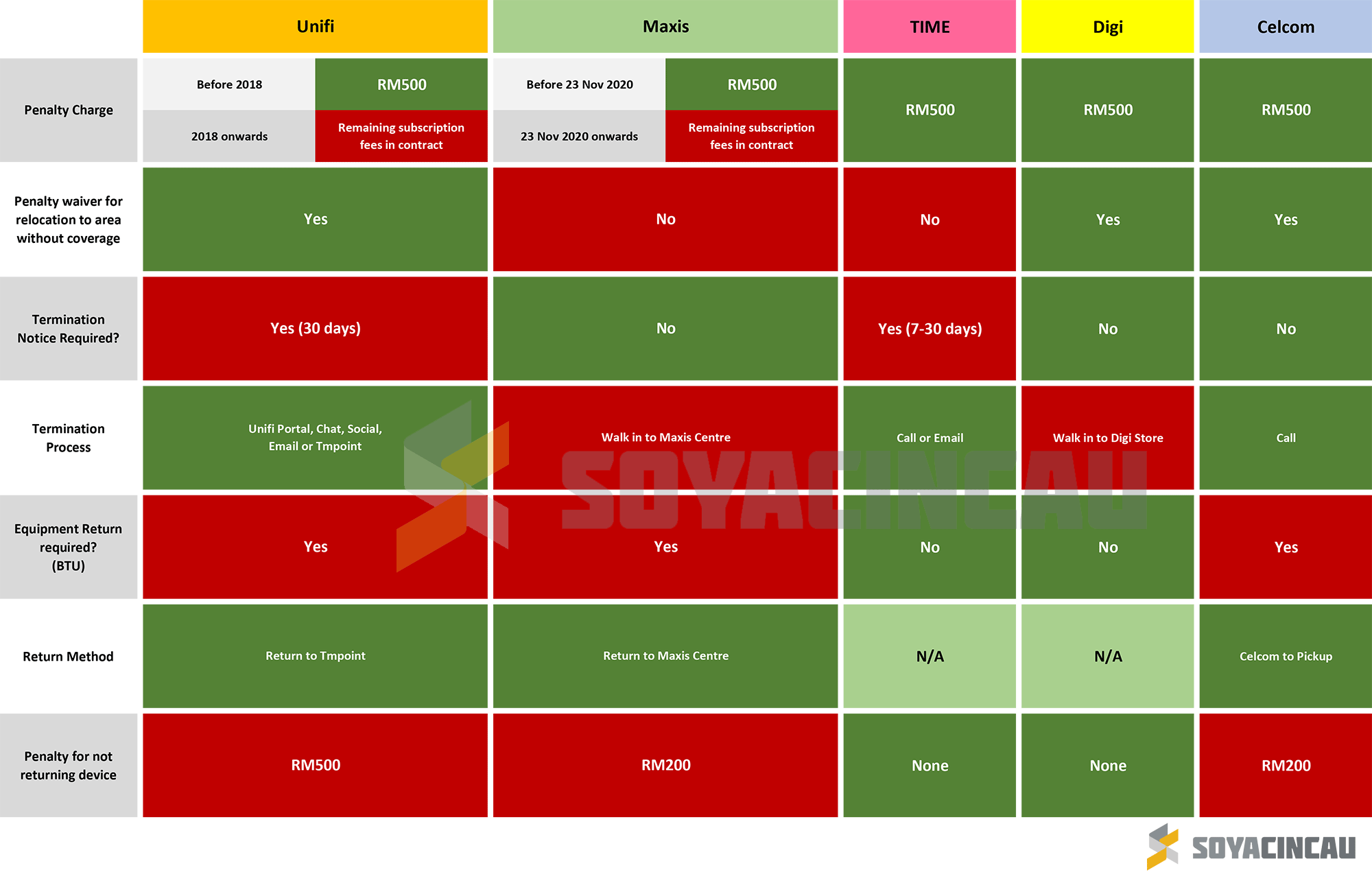
Unfortunately, MCMC’s response to this at the time was that telcos are indeed able to charge any amount for early termination penalties as long as the customer had agreed to the terms. This can get extremely expensive, such as the case of TM and Maxis requiring customers to pay remaining subscription fees in full. If you have a RM199/month subscription with 10 months left, that’s a penalty charge of RM1,990. Rival ISPs meanwhile only charge a one-off RM500 penalty.
Annuar Musa ought to look at stamping out such high termination charges by ISPs. A customer should be able to leave a broadband provider if the telco fails to deliver their services according to promise. If there’s a fairer termination policy, telcos would be more motivated to buck up in order to retain the customer instead of trapping them with unfair contracts.
Then there’s also the issue of “unlimited” data plans that aren’t actually unlimited. Essentially, there’s been a number of telcos with data plans that claim users get unlimited data, but in reality, hide a ‘fair usage policy’ (FUP) in its terms and conditions. This FUP may have started as a way to curb abuse, but often ends up being abused by the telcos to set a hard data caps on your supposedly unlimited data plan.
MCMC had already issued notices to several telcos over the matter back in May, but it would be great if Annuar Musa can put his foot down and put an end to unethical practices and misleading advertising.
Annuar Musa has the opportunity to improve Malaysia’s connectivity
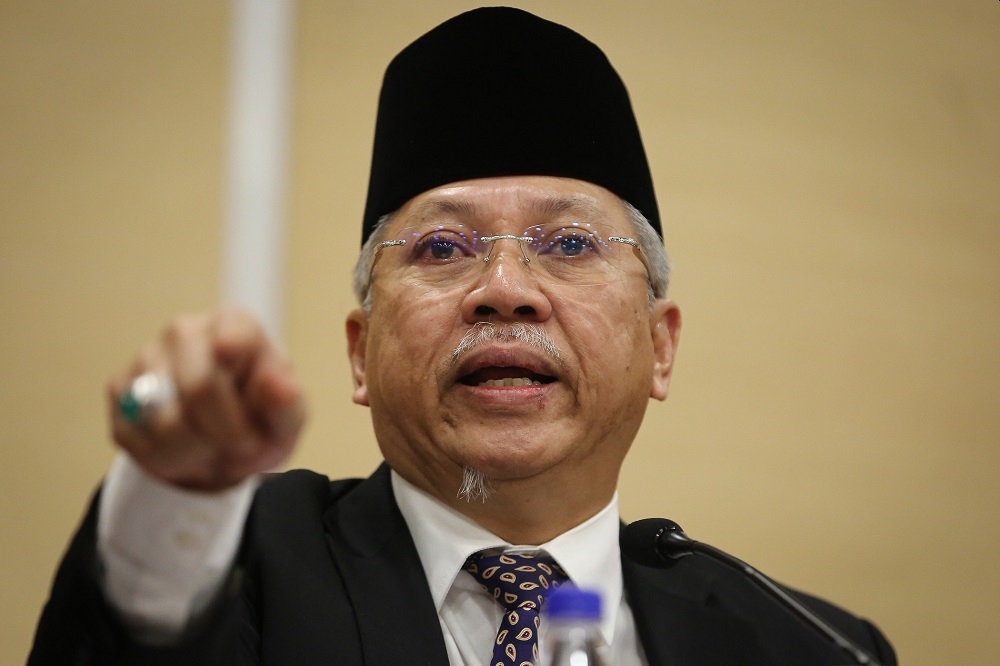
While the way in which he became the Communications and Multimedia Minister would continue to be debated and looked at, the fact is that he is now in charge of the ministry. As such, we’ll be taking a close look at his actions to ensure that he continues to improve upon Malaysia’s internet and connectivity issues via the JENDELA program. The cabotage policy also remains a point of contention, with Dr Wee again taking charge of the Transport Ministry.
Nevertheless, with Annuar Musa in the Ministry, we can hope that he makes the right calls for Malaysians, and not be swayed by other factors. Only time can tell if that will happen.
[ IMAGE SOURCE ]







